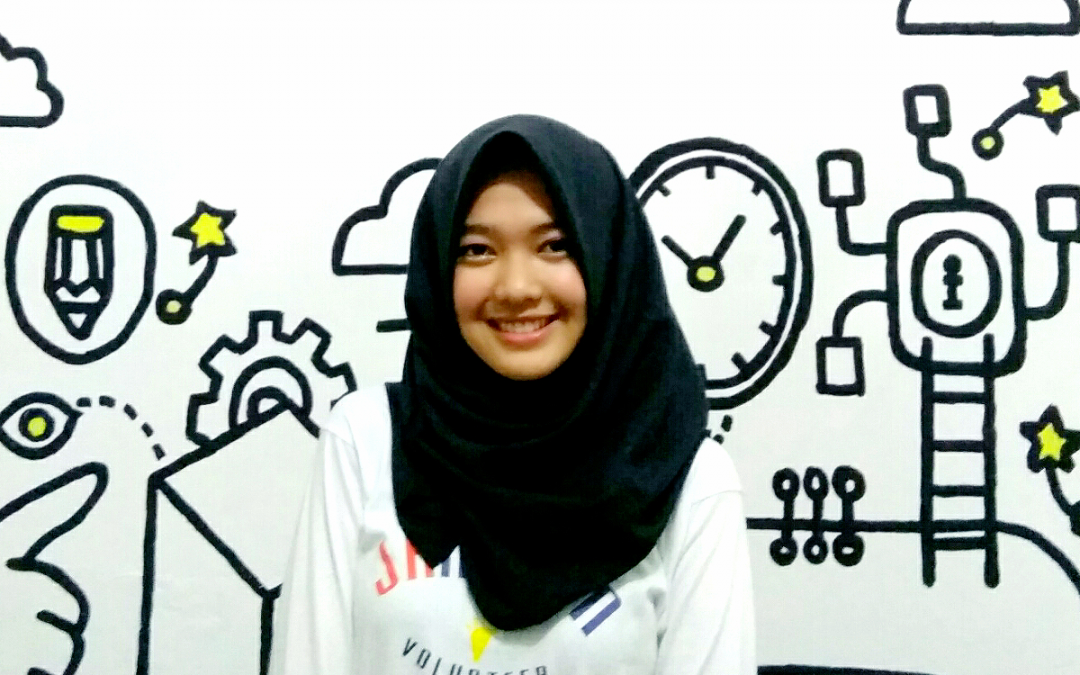Tell us about yourself.
My name is Rizkia Meutia Putri. I am the co-founder of a community group called Jalan Inovasi Sosial (JANIS). JANIS is a social community that engages in social empowerment and community building with a particular focus on innovation. We aim to raise awareness about economic growth, education and environmental issues within the surrounding community in Lampung. One of the projects we have worked on is empowering the tourism industry within Kunjir village, which is located in South Lampung. Here, we see a lot of potential to develop tourism; however public awareness remains low. So, we decided to go to the village and help the local community to realize and develop that potential.
What is the story behind your initiative?
In Kunjir, there is an island called Pulau Mengkudu. It is one of the icons of Lampung, but unfortunately is not marketed very well and thus attracts few visitors. At the start, there were only 10 to 15 visitors per week, but after we conducted a few trips which aimed to empower and educate about the economic development of the community, the condition slowly improved. In the end, we were able to reach over 1000 visitors per month. From there, awareness about the environment also started to increase with people throwing garbage in the correct place. Before, not many of the local people worked; now, various business have opened there as well as tourist guard posts which has resulted in an increase of income for the community from 2 to 3 million rupiah per month from the money collected at each post.
This community has been running for 3 years. It is still sustainable as a tourist village and we still follow up until now. We want to innovate again in the village to attract more tourists to come back.
What are your current strategies to grow?
We are continually building on our tourism strategy to add attractions that can draw tourists back to the area. For instance, at the moment we are looking into agricultural tourism and hydroponics as points of attraction. This is the beauty of agriculture, because housewives and mothers can not only open eateries but also help create new attractions with visual appeal.
We also accompany youth. They are very creative. One of the youths crafted a local good that tourists ended up buying as souvenirs. From there, we realized that we need funding. So to fill in what is missing in our requirements and execution, we sought out support. Why walk alone if we can walk together? We are not alone because many communities and local partners support us. Our team really has a sincere intention and vision to give value to our community.
If we want to seek funding, then we must have a mature concept. At the moment, we are in the process of developing our concept again in the case that there are potential investors or donors who want to support the program. It is important that we refine our concept in order to attract more people.
As a woman founder, what barriers do you experience?
As a woman, your support network is really only the close friends around you because woman still get underestimated. Even for women who are aware of their own potential, it can still be hard. But as long as we can manage these feelings, it will challenge us and it will make us stronger.
How do you overcome challenges and stay motivated?
We recognize that our initiative is useful to others and that there are still people that can benefit from our efforts. If there is something or someone that stands in your way or undermines you, don’t focus on it. I chose to focus on the 1,000 people and the village community who benefits from our services. Just keep going.





